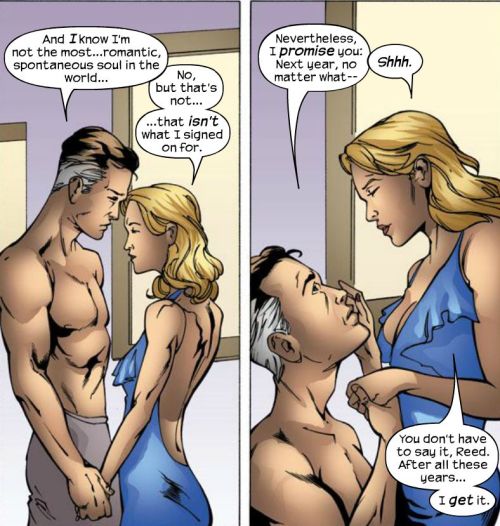It figures.
No sooner do I offer some praise to DC comics (in my
immediately previous post, a look back at the timeless
Justice League/Justice League Unlimited), they go ahead and do something profoundly stupid.
Despite my love of superhero comics and superhero gaming, I've been fairly critical of DC Comics' design choices since their inception of the "New 52" initiative, which rebooted their entire universe and discarded decades of classic comics storylines. However, the minds behind the New 52 made a poor choice worse through sexist depictions of female characters, its ill treatment of legendary comics writers, and its retraction of numerous important comics events, not the least of which were the events of Alan Moore's
The Killing Joke, in which Barbara Gordon was paralyzed by the Joker, leading her to later re-invent herself as Oracle.
I've
expounded on my feelings on the New 52 before. My opinions since that post really haven't changed; even the PlatinumChick--a DC girl through-and-through--has all but given up hope that DC might turn things around. Our pull file just keeps growing smaller and smaller.
But, this time around?
There are bigger issues to deal with, this time with
Batwoman.
No, not Batgirl (Barbara Gordon). Batwoman--Kate Kane.
Batwoman was given the spotlight by stored scribe Greg Rucka during the fantastic
52 event, where she was introduced as a potential love interest for Renee Montoya, a former Gotham city police detective who took up the mantle of The Question following the death of Vic Sage. Yes, Batwoman is a lesbian. She's also a kick-ass crimefighter with tons of great symbolic ties throughout Gotham City. After the New 52 reboot, Montoya was nowhere to be seen, though Batwoman remained.
Rucka parted ways with DC over creative differences (notice a pattern here?), after which the book was assigned to the writer/artist combo of JH Williams and W. Haden Blackman. Williams and Blackman's work on
Batwoman was
stellar, winning several Harvey awards and even the GLAAD award for Outstanding Comic Book.
Batwoman represented a jump forward for LGBT representation in comics...and has now been cut off at the knees.
 |
From Batwoman #17:
Kathy Kane's proposal to Maggie Sawyer. |
Long story short? Williams and Blackman's plot involved Kane proposing to current girlfriend Maggie Sawyer with the intent of having the pair marry. DC editorial outright forbade this, despite allowing Williams and Blackman to build to this point over the past year's worth of issues. Williams and Blackman were "crushed", ultimately deciding to leave DC Comics due to the editorial interference.
DC Comics claims that homophobia has no place in this decision, stating that "the editorial differences with the writers of
Batwoman had nothing to do with the sexual orientation of the character." Rather, Dan Didio explained that the anti-marriage edict extended to
all their characters--not just the solitary lesbian hero with her own book--and that marriage simply has no place in the lives of a masked vigilante:
"They shouldn't have happy personal lives…They put on a cape and a cowl for a reason, They’re committed to being that person, they’re committed to defending others—at the sacrifice of all their own personal instincts….That’s something we reinforce. If you look at every one of the characters in the Batman family, their personal lives kind of suck." --Dan Didio
As you well know if you've read this blog at all, I love dark, tortured anti-heroes. All the best heroes require motivation and pathos, to say nothing of a great villain to fight against. But here? There's a problem.
First, there's the issue of perception. While you may
state that forbidding the only lesbian heroine's marriage isn't homophobic, it still
looks homophobic. And, as a member of the LGBT community myself? It sure
feels homophobic! When you an issue a statement like this, you forfeit the ability to tell the reader/listener how they feel about it. That's our decision, individually, as readers. You might not have intended to be a bigot, but you sure did it anyway, Mr. Didio.
There aren't exactly a lot of LGBT heroes in comics today. Batwoman was certainly the most celebrated, most visible of those heroes. Preventing her from engaging in a healthy, monogamous relationship makes for a slap in the face of the LGBT community who fight every day for the right to marry, even if it's not what you intended. When you're on the stage, you don't just get to step back because you think "its not right for
any character".
Secondly, there's the issue of the creators. Williams and Blackman are among the most celebrated writers in comics today.
Batwoman, under these two, has been among the most celebrated books on an underwhelming DC slate. Mr. Didio, can you really afford to anger these two? Bruce Timm and Paul Dini are now at Marvel Animation, alongside Jeph Loeb. Mark Waid is writing on
Daredevil and Greg Rucka just wrapped up a run on
Punisher. Can you really afford to keep
handing storied writers and artists to your competition? They're leaving in droves, because of your continual interference.
Finally, let's talk a little about tragedy. Let's take you at your word and assume that there's no anti-LGBT bias in this decision; that, instead, you really believe that marriage has no place in comics. I decry that point utterly. The best sorts of characterization come from interpersonal drama, not the least of which comes directly from marriage, which we've seen in comics over and over again for the past 50 years. To say that "marriage has no place in comics" ignores countless decades of committed relationships throughout comics!
 |
Reed Richards and Sue Storm:
married for all these years, and there's
still tension! That's good storytelling. |
Reed Richards and Sue Storm represent the pinnacle of this point, weathering not just cosmic invaders but also the stresses of family life. Namor, for instance, becomes much less interesting as a Fantastic Four foe without the sexual tension between himself and Sue. Peter Parker's entire characterization centers around his ability to juggle the responsibilities of being Spider-Man with the obligations of his family and social life, not the least of which is his faltering relationships with Mary Jane Watson, Felicia Hardy, Gwen Stacy, and others.
Brooding, dark, tormented heroes are all well and good, but they only get that way if they have something to torment them! While I'm not advocating the "
fridging" of characters simply for the sake of drama, a compelling superhero--especially of the low-powered, vigilante style--struggles with the issues of maintaining a double life. Part of that double life has to be a realistic, nuanced view of romantic relationships. Marriage raises the stakes in those relationships, representing a monogamous commitment that carries difficulty, ardor, and struggles all its own.
Are you really so naive, Mr. Didio, as to assume that when a hero gets married that their problems end? That their life is forever happy and carefree? Marriage takes work, compromise, and continual communication. In all actuality, a married hero likely faces
more trial and tribulation than their single counterparts! That hero could face the struggles of maintaining their "secret life" behind the mask, while their partner grows closer to the truth. Or, a hero might share their secret with their partner, leading to even more tension. To discard all of this literally throws away entire story arcs worth of possibilities!
You know what speaks most highly to this phenomenon? The below image:

That's Northstar--a C-list
X-Men character, getting married to his boyfriend. Ever since Chris Claremont, the
X-Men series has thrived on character drama, not the least of which has come from romantic relationships: the Cyclops-Jean Grey-Wolverine love triangle alone filled tons of books! And now, Marvel took pride in letting two LGBT characters marry, on a front cover even.
And DC? They'd sooner let two fantastic authors walk than let those authors write a lesbian heroine in a realistic manner.
 The original Killer Clowns module--a Hell on Earth "Dime Novel" romp by the spectacular John Goff--made for a great trip through a haunted amusement park, complete with the titular killer clown automatons. However, the adventure was fairly short (as most Dime Novels were) and didn't go deeply into the amusement park theme. And, considering that yours truly used to work in an amusement park...I couldn't help but take a shot at this one!
The original Killer Clowns module--a Hell on Earth "Dime Novel" romp by the spectacular John Goff--made for a great trip through a haunted amusement park, complete with the titular killer clown automatons. However, the adventure was fairly short (as most Dime Novels were) and didn't go deeply into the amusement park theme. And, considering that yours truly used to work in an amusement park...I couldn't help but take a shot at this one!

